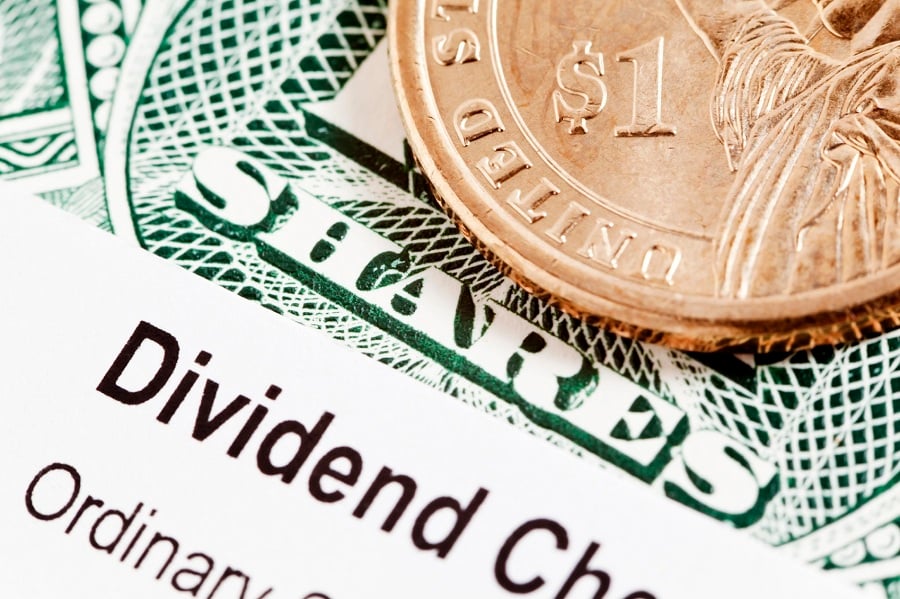As the Federal Reserve announces its third interest-rate cut of the year, after more than a decade spent
trying to push rates higher, financial advisers are being forced to get creative when searching for income-producing investments for their clients.
In many cases, that means shifting out of traditional fixed-income allocations and into
dividend-paying stocks, a practice that has become increasingly popular and somewhat controversial.
"There are dozens, if not hundreds, of quality, blue-chip stocks with dividend yields of at least 3%, with many above 4%," said Paul Schatz, president of Heritage Capital.
Even though Mr. Schatz recognizes the risks of supplanting bonds with stocks, he is doing exactly that for some of his clients who want more income than they're able to get from bonds.
"Those stocks will decline significantly during the next bear market," he said. "Investors need to buy with their eyes wide open. And, as we learned with GE and many others, when the company struggles, the dividend may get cut or eliminated."
[Recommended video: Mary Beth Franklin: Encourage shopping during Medicare open enrollment]
The trend toward loading up on dividend-paying stocks has been unfolding all year, said Todd Rosenbluth, director of mutual fund and ETF research at CFRA.
"Bond yields have fallen, and investors have been searching for income alternatives," he said, citing the popularity of ETFs such as
iShares Core High Dividend (HDV) and
Vanguard High Dividend Yield (VYM), two equity funds with dividend yields above 3%.
According to Mr. Rosenbluth, this year through Oct. 29, dividend-focused ETFs have experienced $12 billion worth of net inflows.
That compares to $5 billion for all of last year, when the market was
worried about the Fed raising rates.
Even though dividend-focused funds are typically more heavily allocated to defensive sectors like consumer staples, health care and utilities, the funds still hold stocks, which introduces some risks that bond investors don't have to worry about.
"I think it's not a great idea" to substitute dividend-paying stocks for bonds, said Christine Benz, director of personal finance at Morningstar.
"Even though there's a lot to like about dividend-paying stocks, bonds and dividend-paying stocks aren't fungible," she said. "High-quality bonds have a much lower volatility profile than stocks, and most investors own bonds for their shock-absorbing characteristics and their ability to diversify
equities, not just for income."
To put the volatility differential into perspective, Ms. Benz cited the 10-year standard deviation of the average intermediate-term core bond fund tracked by Morningstar of about 3, versus the standard deviation of 10 for a basic dividend growth fund and 11 for a basic equity-income fund.
The appeal of dividend-paying stocks in a low-rate environment is understandable and even multifaceted.
For example, while bonds can be held to maturity and produce a predictable income stream, stocks present the potential for capital appreciation, and dividends are taxed at a lower rate than is bond income.
Tim Holsworth, president of AHP Financial Services, has watched the trend toward dividend-paying stocks versus bonds, and warns that it's not just about seeking out a source of income.
"Dividends are great, but stocks don't provide the stability of bonds," he said. "Now we're back to matching risk tolerance to investment choices."
[More: Advisers scramble to help retirees navigate looming Fed rate cut]







